Table of Contents[Hide][Show]
- LISTEN TO THE PODCAST
- CHAPTERS
- Red Meat Does NOT Cause Diabetes!
- Understanding the Claims: What the Headlines Are Saying
- The Flaws in the Research
- Red Meat is NOT High in Saturated Fat: Debunking the Myths
- Meat Nutrition Facts
- What Really Causes Type 2 Diabetes?
- No Real Evidence for Red Meat and Diabetes
- The Bottom Line: Red Meat Does NOT cause diabetes!
- Transcript
In this episode we’re cutting through the noise of sensational headlines to uncover the truth about whether red meat really causes diabetes. Tune in as we debunk the myths, analyze the research, expose flaws in the research and the way people think, and cut through the hype to set the record straight.
LISTEN TO THE PODCAST
CHAPTERS
1:39 The global read meat headlines: truth or propaganda?
4:08 Analyzing the facts behind red meat causing diabetes
9:21 Does eating two slices of ham a day cause diabetes?
10:27 Chicken was missing and disproportionate conclusions about red meat causing diabetes
12:42 Saturated fat in red meat is not the mechanism that causes diabetes
17:31 There is no real science that links meat with diabetes
Support the podcast by leaving a 5-star rating and review on Apple, Spotify or our Website – Thank You!
Red Meat Does NOT Cause Diabetes!
If you’ve been following the news recently, you might have come across some alarming headlines claiming that red meat can cause type 2 diabetes.
Sensational claims like “Just Two Slices of Ham a Day Could Raise Your Risk of Developing Type 2 Diabetes” have been making the rounds, stirring up concern and confusion.
But as someone who is committed to your health, it’s important to look beyond the headlines and dig into the facts.
Let’s explore why these claims about red meat are misleading and what the research really says.
Understanding the Claims: What the Headlines Are Saying
These headlines stem from a paper published in The Lancet Diabetes & Endocrinology.
The study pooled data from nearly 2 million people across 31 different population studies.
According to the researchers, consuming red or processed meat could increase your risk of developing type 2 diabetes by 10% and 15%, respectively.
It’s no wonder these findings caught the attention of the media, but as with many things, the devil is in the details.
The Flaws in the Research
Let’s be clear—red meat does not contain sugar or carbohydrates, the primary culprits in elevating blood glucose levels. So, how could it possibly be linked to diabetes? The answer lies in the methodology of the study.
The study used Food Frequency Questionnaires (FFQs) to collect data. These questionnaires ask participants to recall their food intake over a period of time, often as long as a year.
Think about that for a moment—how accurately could you recall what you ate last week, let alone 12 months ago? The accuracy of these questionnaires is questionable at best.
Moreover, the study didn’t differentiate between unprocessed red meat and processed meats, relying on the definitions from the studies included in the review. And that’s what’s alarming.
Previous studies have grouped unprocessed red meat and processed meats with foods that contain high amounts of carbohydrates, such as sandwiches and lasagna. This conflation makes it nearly impossible to isolate the effects of red meat itself on diabetes risk.
What’s more, when you look at the absolute risk figures—rather than the relative risk percentages—it becomes clear that the increase in diabetes risk is minimal.
The study suggests that eating unprocessed red meat could increase your absolute risk of developing type 2 diabetes by just 0.57%. That’s not even a full percentage point!
This hardly justifies the panic-inducing headlines you’ve seen.
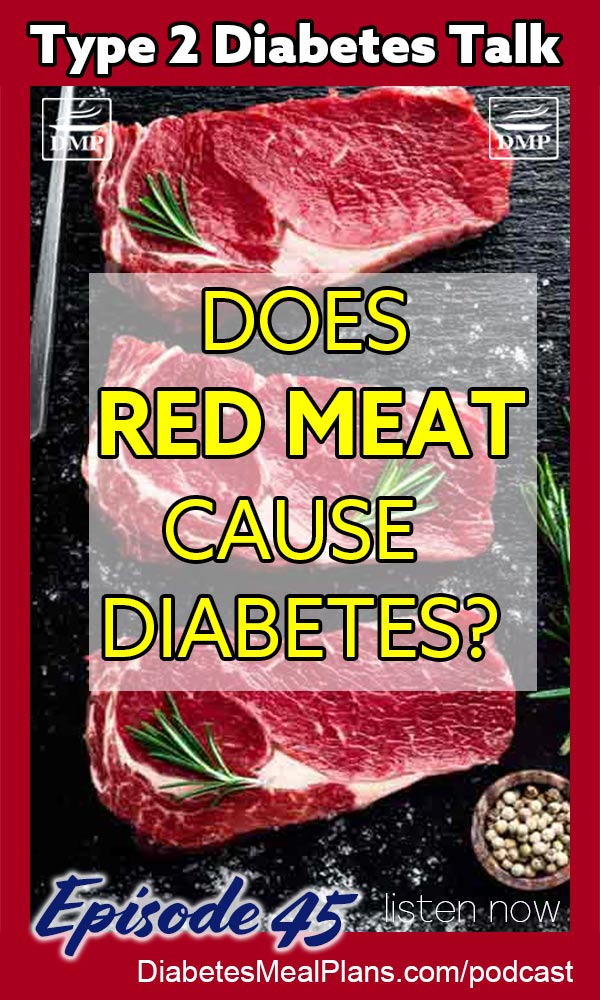
Red Meat is NOT High in Saturated Fat: Debunking the Myths
Another angle the study (and other studies like it) take is blaming the saturated fat in red meat for this supposed increased risk of diabetes. However, this notion is based on outdated and oversimplified ideas about dietary fats.
The truth is, the primary fat found in red meat is monounsaturated fat—the same kind that’s praised for its heart-healthy benefits in foods like olive oil.
When you compare the fat content of red meat with other commonly consumed meats like chicken and pork, you’ll find that they all contain similar types of fats: a mix of saturated, monounsaturated, and polyunsaturated fats.
For example, 3.5oz / 100 grams of beef sirloin contains around 5.5 grams of saturated fat, while 100 grams of extra virgin olive oil contains 15.4 grams of saturated fat.
Olive oil is widely recognized as a healthy fat source, so why should the saturated fat in red meat be viewed any differently?
Moreover, research on full-fat dairy products, which also contain significant amounts of saturated fat, shows that they can actually lower the risk of developing type 2 diabetes.
If saturated fat in dairy is protective, it makes little sense to vilify the saturated fat in red meat.
Meat Nutrition Facts
To confirm that all meats are higher in monounsaturated fats compared to saturated fats, view the table below.
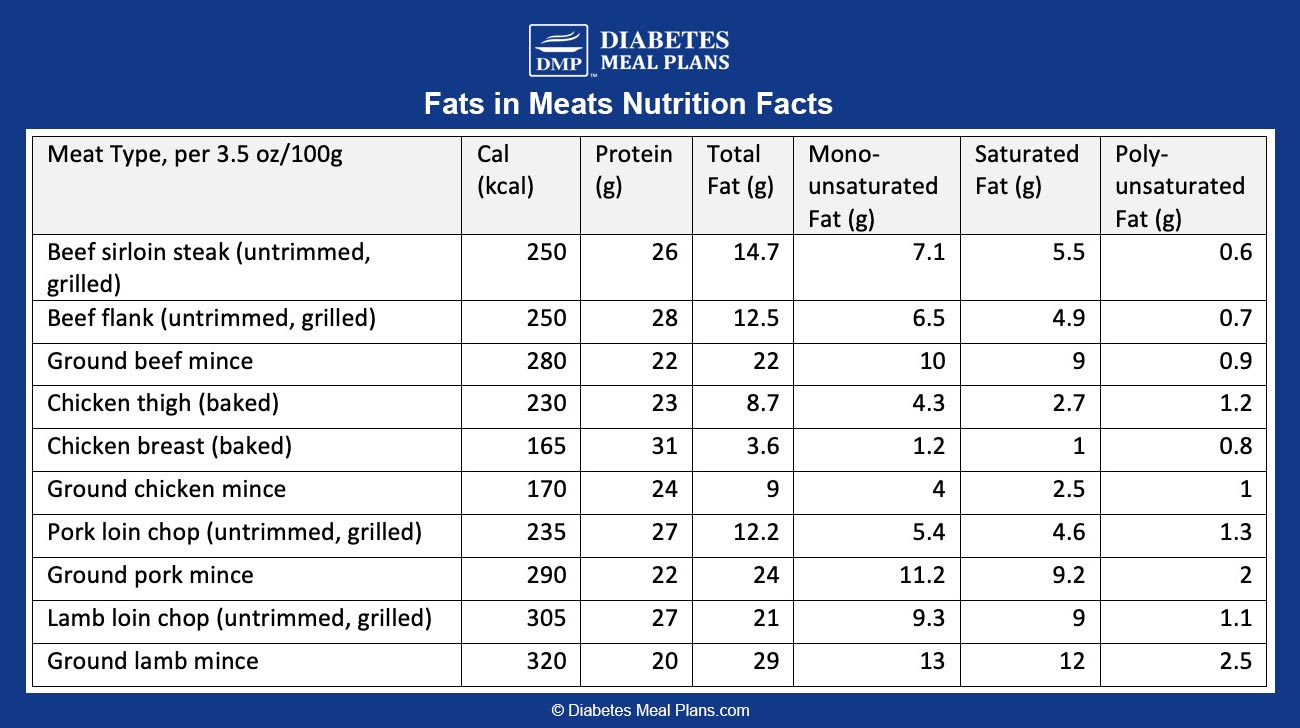
That’s an eye-opener isn’t it. Red meat is not FULL of saturated fat, as we’re often told.
To emphasize again, all meats, including a tasty steak, are higher in monounsaturated fats compared to saturated fats!
What Really Causes Type 2 Diabetes?
So, if red meat isn’t the culprit, what is?
The biggest risk factors for developing type 2 diabetes are well-known: being over 40, having a family history of diabetes, belonging to certain ethnic groups, and carrying excess weight, especially around your midsection.
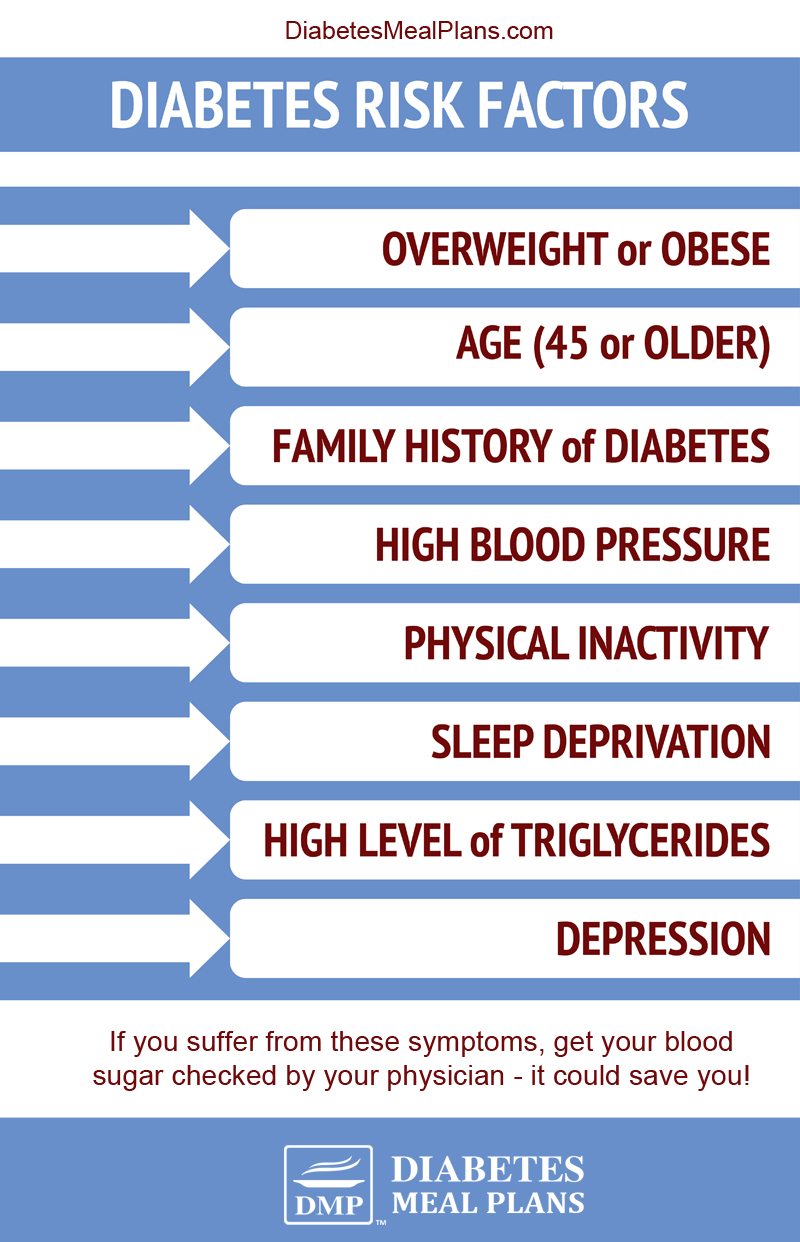
Diet and lifestyle also plays a crucial role to your level of risk.
A modern diet high in refined carbohydrates, sugars, and processed foods, combined with a sedentary lifestyle, are much more significant contributors to the development of type 2 diabetes than consuming red meat.
In fact, the population studies that generate these sensational headlines, always show that individuals who eat higher quantities of meat often engage in other unhealthy behaviors—like smoking, drinking alcohol, eating sugar and refined carbs (processed foods), and eating high-calorie diets—that are more likely to increase their diabetes risk.
It’s just a ridiculous notion to blame red meat for the health issues created by high intakes of ultraprocessed junk foods, and excessive amounts of carbohydrates, especially sugar and refined carbs!
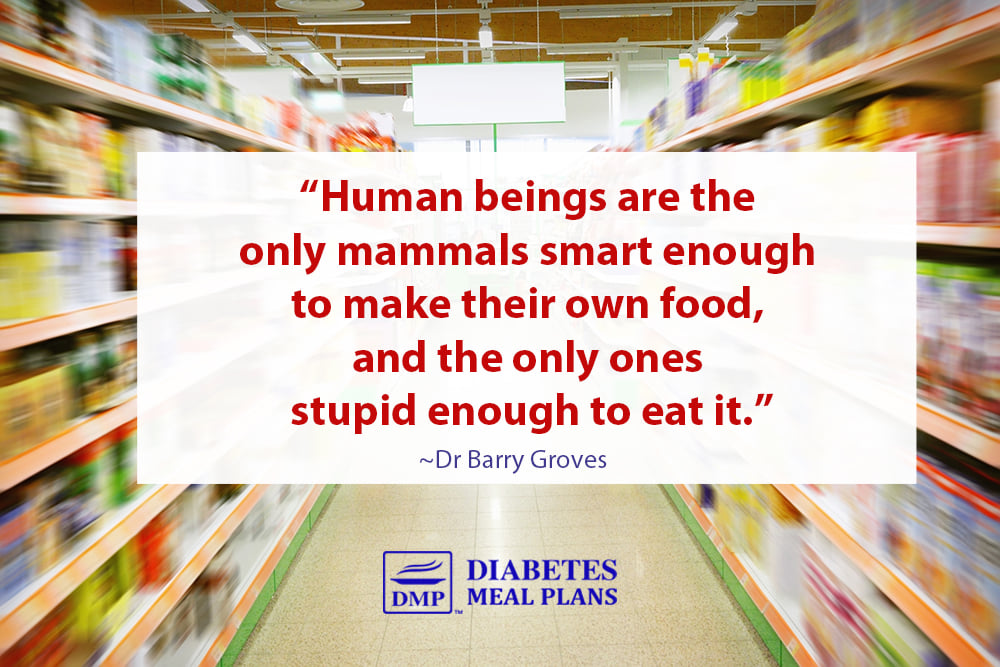
No Real Evidence for Red Meat and Diabetes
There is no real science linking red meat to diabetes, period.
Even this recent Lancet paper itself states:
“Randomized controlled trials have investigated a mechanistic link between meat consumption intervention and risk markers for type 2 diabetes, such as HbA1c, postprandial insulin concentration, and insulin resistance; however, no definitive effects have been reported.”
Or in other worse, there is no research to link meat consumption with risk markers for type 2 diabetes, period.
Population studies such as this recent paper, and many before it, do not prove anything. Population studies can only show potential associations, they do not demonstrate causation.
And, in these population studies, the risk is small, if not tiny and certainly nothing to be concerned about.
If a population study were to find a significant and worthwhile association, then these factors should be pursued and tested in randomized controlled trials. They rarely are, because they are not truly significant or worthwhile – it is just more propaganda!
The Bottom Line: Red Meat Does NOT cause diabetes!
Red meat does not cause diabetes!
Especially when consumed as part of a healthy low carb nutrition plan, which is the case for most people.
The sensational headlines you see are often the result of misinterpreted research and do not reflect the true cause of diabetes.
Remember, don’t let the headlines dictate your health decisions.
Click bait news headlines love to generate, well… clicks and eyeballs on their website. And behind that is often people with an agenda to continue to propagate common outdated narratives that simply aren’t true.
For example, food companies make billions from processed foods so it’s beneficial for them to make you believe that it’s healthier to eat processed margarine or fake plant-based meat products than it is to eat red meat or butter. They make more money from margarine and fake meat!
Keep your detective, no nonsense hat on. Stay informed through trusted sources like us here at DMP and through the Type 2 Diabetes Talk podcast.
Transcript
Click Here To View
Subscribe to Type 2 Diabetes Talk on: Apple | Spotify | Amazon Music | Audible | YouTube | Podcast Index | Player FM | and more…


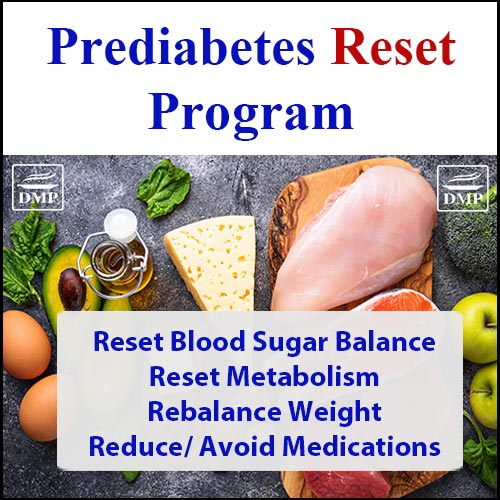
Leave a Reply